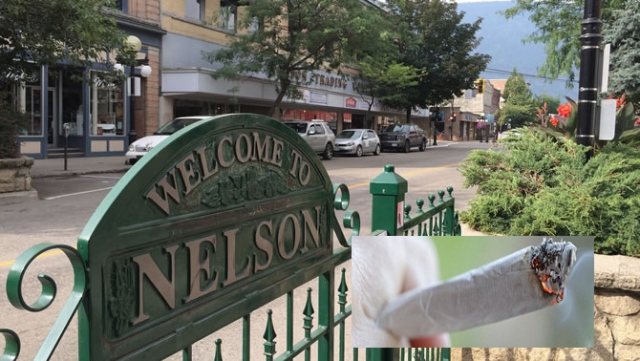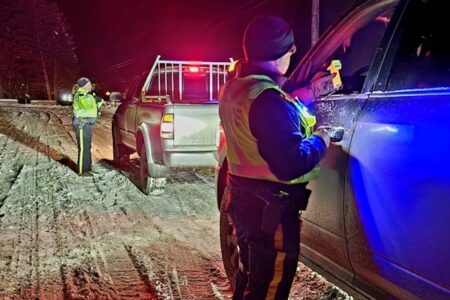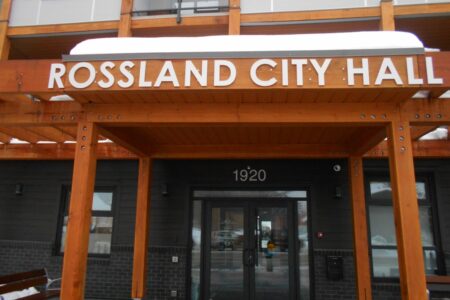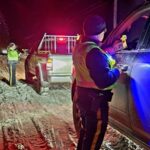How will Federal cannabis legalization shake out — police, local marijuana dispensaries wait to find out
Several cannabis dispensaries in Nanaimo were recently raided by RCMP, causing residents of Nelson — widely referred to as Canada’s “pot capital” — to wonder if similar action may be taken here on the road to legalization.
With new dispensaries popping up all the time, and a promise of cannabis legalization from Justin Trudeau, there is a lot of confusion surrounding legally accessible cannabis.
What these new laws will entail, how they will be enforced and to what level is currently unknown.
However, both operators and law enforcement have their ideas about how the process will evolve over the next year.
In the interim, it seems that a few cities are taking it upon themselves to regulate the legal cannabis industries, in order to ensure that medicinal marijuana is going to the people who need it and that compassion, not cash, remains the key focus.
“There are certain municipalities that have come forward and said we can’t do this, we have too many dispensaries popping up unregulated, we’re doing it ourselves,” said Kaleigh Herald of Nelson’s own Kootenay’s Medicine Tree dispensary.
As to how the government regulations will operate once cannabis is legalized, Herald said we only need to look south of the border.
“Hopefully we will model after Colorado’s system,” Herald said.
“It seems that there will be a separation between the recreational and medicinal market which I strongly think there should be.”
She continued by stating that while there is certainly money to be made, it’s important that the people who use cannabis as medicine are not forgotten.
“It’s a viable medicine, but when you mix the two you’re eliminating the compassion for the patients that are seriously using this to help save their lives.”
Nelson Police Deputy Chief Paul Burkart shared similar sentiments with Herald regarding how the upcoming system will operate. Burkart said that he also predicts a system of regulation similar to that in Colorado.
“I would imagine that the governments would be looking at what other jurisdiction have done, places like Washington State and Colorado,” he said.
“Washington State uses their liquor control board to regulate marijuana in the state. It is possible the province may use a similar approach.”
“I am sure that the City will also look to see what other municipalities will be doing to regulate these businesses once the Federal government sets up their regulations,” Burkart added.
“I do not think that Nelson will be looking to reinvent the wheel. They will be taking a look at places like Vancouver, Kimberley, Victoria and Port Alberni who are already engaged in the dispensary regulation – or at least in serious discussion about regulating.”
Another big question surrounds the level of control and decision-making cities will have at the local level. Whether or not these sweeping changes will be enforced and dictated by the federal or provincial government will have a big impact on how this new industry will operate.
Dana Larsen of Sensible BC had his own ideas of how legalization will occur.
“Politically it’s probably easier for Trudeau to end the fed prohibition and then pass off regulation to the provinces so I expect well see different models across Canada just as we have different models for alcohol,” said Larsen.
“I expect that even afterwards some provinces will support [the changes] and some won’t. I think most will, I haven’t seen any promising to defy federal prohibition and keep it in place, but I do see a lot of issues around legalization coming in.”
In the meantime, Burkart said that the Nelson Police will continue to operate as they have in the past, ensuring that those dispensaries following the rules will be able to do so, but that law enforcement will be ready to act on businesses breaking the law.
“We will continue to take enforcement action if we find that the businesses are working outside the guidelines set out by the courts,” Burkart said.
“And if there is any indication that the businesses are selling to youth or involved with organized crime, we will be enforcing. We will continue to enforce until such time as the Federal government regulates — which unfortunately still may be a while yet.”

























